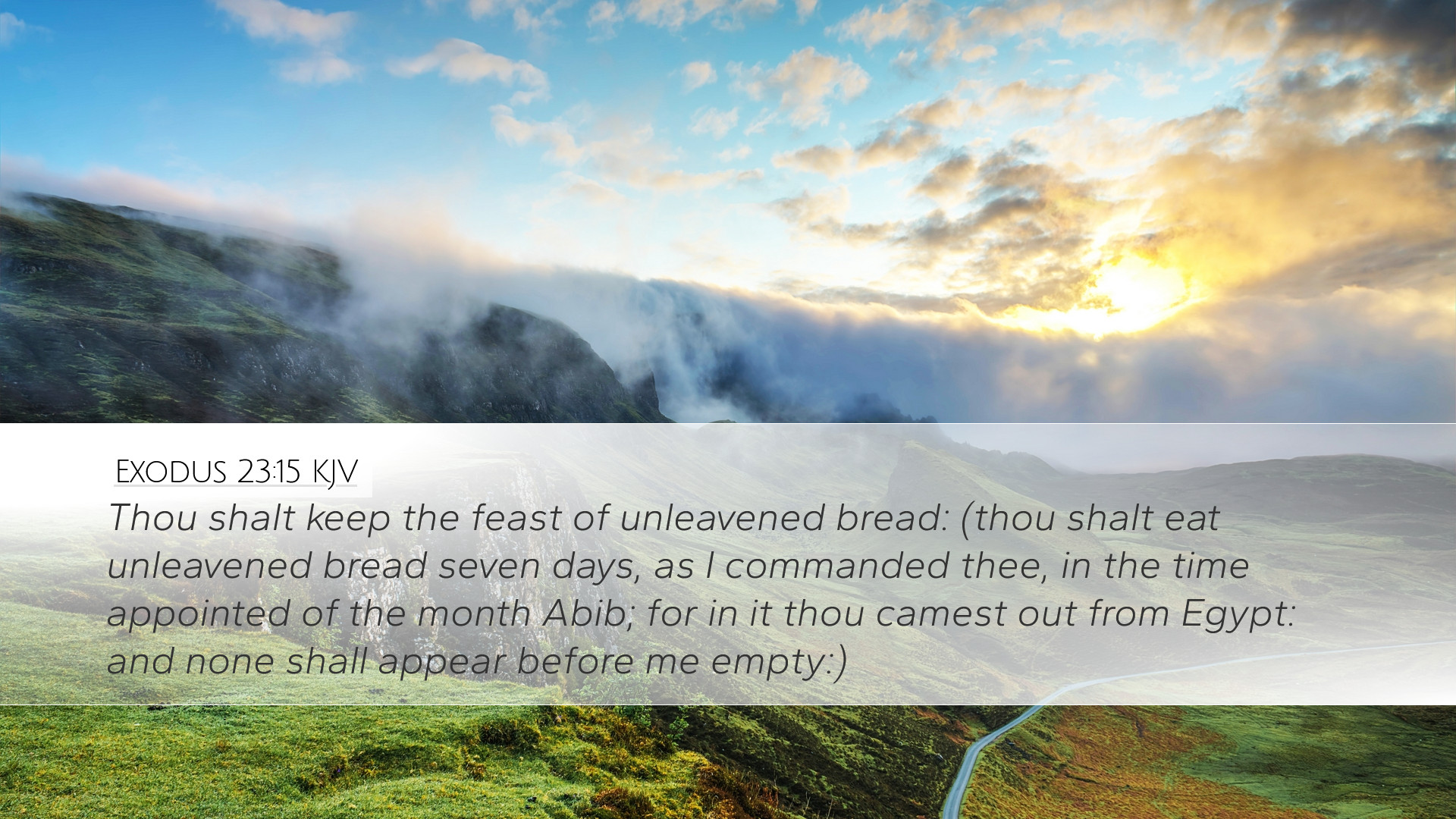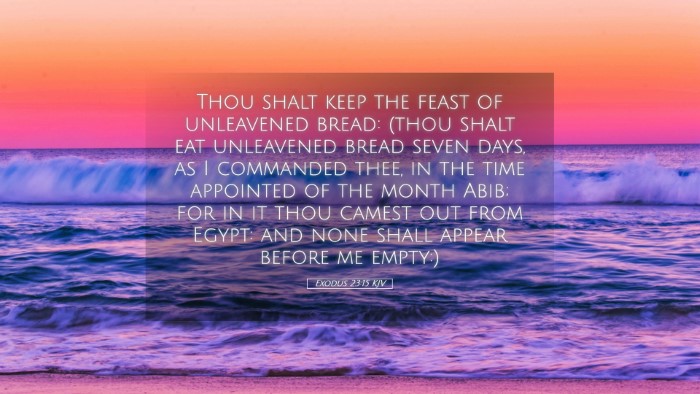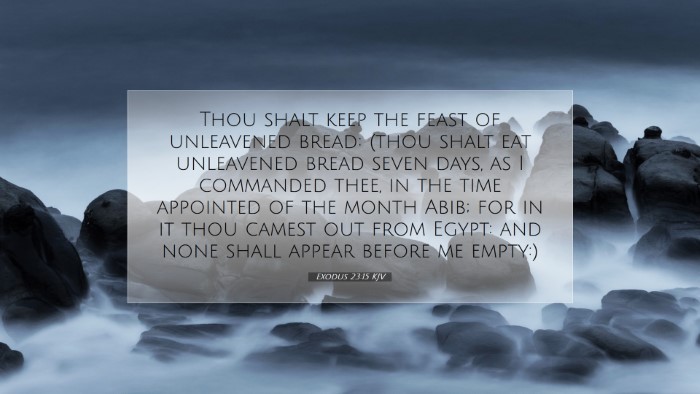Exodus 23:15 Commentary
Bible Verse: "You shall keep the Feast of Unleavened Bread. As I commanded you, you shall eat unleavened bread for seven days at the appointed time of the month of Abib, for in it you came out of Egypt. None shall appear before Me empty-handed."
Contextual Background
This verse is part of God's instruction to the Israelites during their journey in the wilderness, shortly after the Exodus from Egypt. The "Feast of Unleavened Bread" is a critical observance in Jewish tradition, commemorating the hastiness of their departure from Egypt and the need for purification. God commands that the Israelites observe this feast to remember His deliverance and their covenant relationship with Him.
Matthew Henry's Commentary
Matthew Henry emphasizes the importance of observing the Feast of Unleavened Bread, noting that the command was rooted in gratitude for God's salvific action. He writes:
"The Lord not only commands the observance of this feast, but He endows it with significant reminders of His intervention for His people. The delivering hand of God must lead our hearts to a perpetual remembrance."
Henry reflects on the spiritual symbolism of unleavened bread—a representation of purity and sincerity, signifying that the Israelites must not only remember their deliverance but also live transformed lives devoid of the 'leaven' of sin.
Albert Barnes' Commentary
Albert Barnes takes a practical approach in his analysis, focusing on the implications of the command. He notes the recurring theme of not appearing before God empty-handed:
"God’s call to present oneself before Him demands acknowledgment of His provision and faithfulness. The offerings during this feast serve not just as a duty but as an act of worship, recognizing that all we have is from Him."
Barnes insists that the act of bringing offerings is central to the relationship between God and His people, serving as a physical demonstration of gratitude and reverence.
Adam Clarke's Commentary
Adam Clarke provides an insightful discussion on the loyalty and commitment required from the Israelites:
"The directive here connects the act of remembrance with the acknowledgment of dependence upon the Lord. To come before Him with substance shows faithfulness to the covenant, as blessings are not merely spiritual, but also material."
Clarke connects this command to the broader narrative of the covenant, emphasizing that the Israelites were to maintain a constant awareness of God's past deeds and His expectations for their conduct moving forward.
Theological Reflections
In light of these commentaries, a few theological reflections can be drawn:
- Remembrance as Worship: The commanded observance of the Feast signifies that worship is deeply entwined with remembrance. God desires His people to reflect on His faithfulness actively.
- Offerings as Acknowledgment: Bringing forth offerings is portrayed as an essential aspect of divine worship. It illustrates that true worship involves offering our lives, gifts, and gratitude back to God.
- Purity and Transformation: The symbolism of unleavened bread urges believers to seek holiness and purity in their lives, showcasing that deliverance leads to a transformed life.
Conclusion
Exodus 23:15 serves as a rich reminder for both ancient Israel and contemporary believers about the importance of remembrance, gratitude, and the faithful acknowledgment of God's providence. As theologians, pastors, and students engage deeply with this text, they may find profound insights that inform both personal faith and communal practice.


